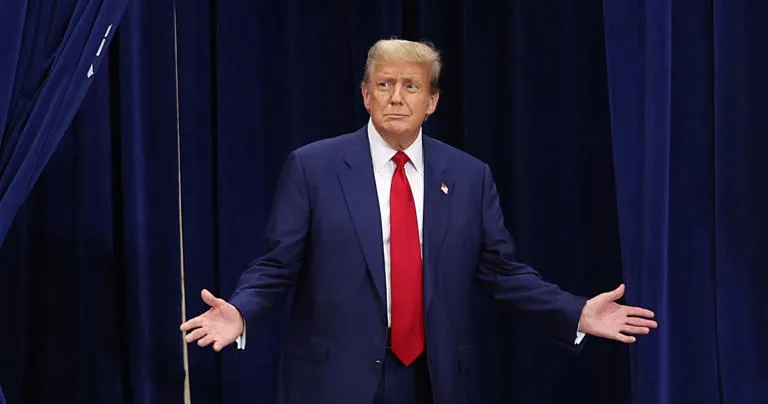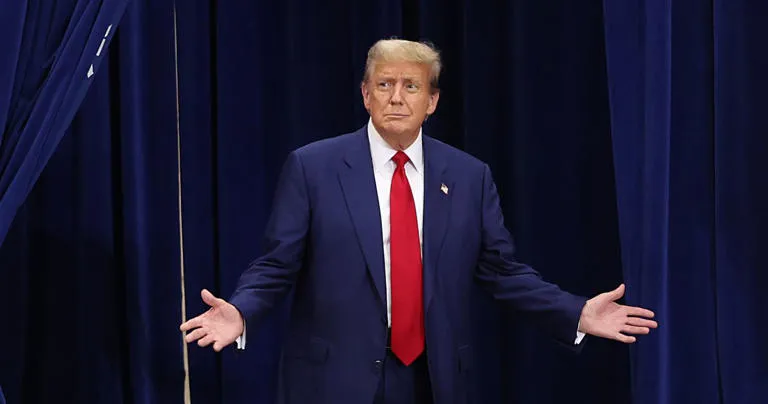Understanding Trump’s Latest Position
In the realm of abortion rights, the political landscape can be as volatile as it is contentious. Recently, the presumptive Republican presidential nominee, Donald Trump, embarked on a journey of wavering opinions, ultimately settling on a stance that places the decision-making power regarding abortion laws squarely in the hands of individual states. This pivot came after flirting with support for a national 15-week abortion ban and grappling with the complexities of IVF treatment protection under “fetal personhood” laws.
A State-Centric Approach
Trump’s latest stance emphasizes his belief that each state should determine its abortion laws through either legislative processes or popular vote. This move, seen as a retreat from endorsing a national ban, seeks to uphold the principle of state autonomy in shaping reproductive rights policies. However, it also raises questions about the consistency and coherence of his position, particularly in light of ongoing debates surrounding reproductive rights.
Navigating Exceptions and Allegations
In a video statement posted on Truth Social, Trump made notable mentions of exceptions he would neither support nor oppose within abortion bans, including cases of rape, incest, or threats to the mother’s life. Moreover, he denounced an alleged Democratic position advocating for abortions “up to and even beyond the ninth month,” labeling it as a smear tactic. Despite these assertions, Trump’s positioning appears to leave room for ambiguity on various fronts, reflecting a strategic maneuver to appeal to a broader audience while avoiding alienating staunch anti-abortion allies.

Implications for the Political Landscape
Trump’s reluctance to make abortion a central issue in the 2024 presidential race underscores the complexities and sensitivities surrounding reproductive rights within the Republican Party. By urging anti-abortion activists to prioritize electoral victories for broader cultural and national preservation, Trump aims to maintain a delicate balance between appeasing his base and avoiding potential electoral setbacks. However, his avoidance of explicit endorsements or rejections of specific abortion policies leaves room for speculation and criticism, especially concerning his home state of Florida’s upcoming vote on abortion rights restoration.
Challenges Ahead
Despite Trump’s attempts to navigate the intricacies of abortion politics, challenges loom on the horizon. His acknowledgment of the Supreme Court justices who contributed to the reversal of Roe v. Wade underscores the ongoing battles within the judiciary and legislative arenas regarding reproductive rights. Moreover, the upcoming elections, coupled with evolving court decisions and potential executive actions, will shape the trajectory of abortion policy in the United States, with Trump’s stance likely to face heightened scrutiny and opposition from advocates of reproductive rights.
Conclusion
Donald Trump’s evolving stance on abortion rights reflects the intricacies of navigating a polarizing issue within the political arena. While his emphasis on state autonomy and electoral victories signals a strategic approach to garnering support, it also highlights the challenges of balancing ideological consistency with pragmatic considerations. As the debate over reproductive rights continues to unfold, Trump’s positioning is poised to influence not only electoral dynamics but also the broader trajectory of abortion policy in the United States.
